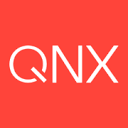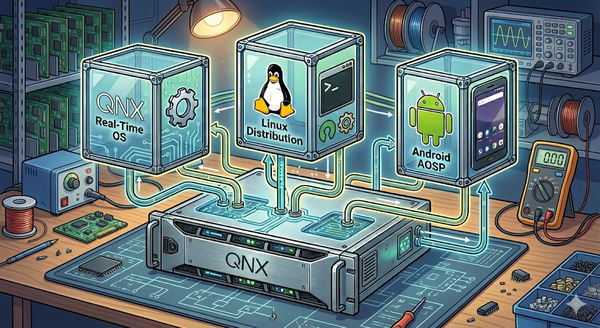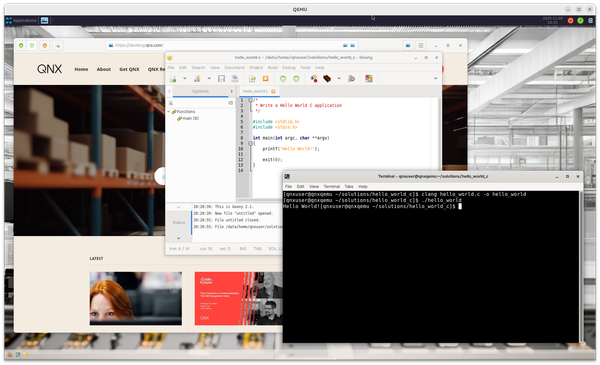What’s It Like Working At QNX?
We sat down and talked candidly with some of our favorite QNX interns to see what they think about working at QNX.
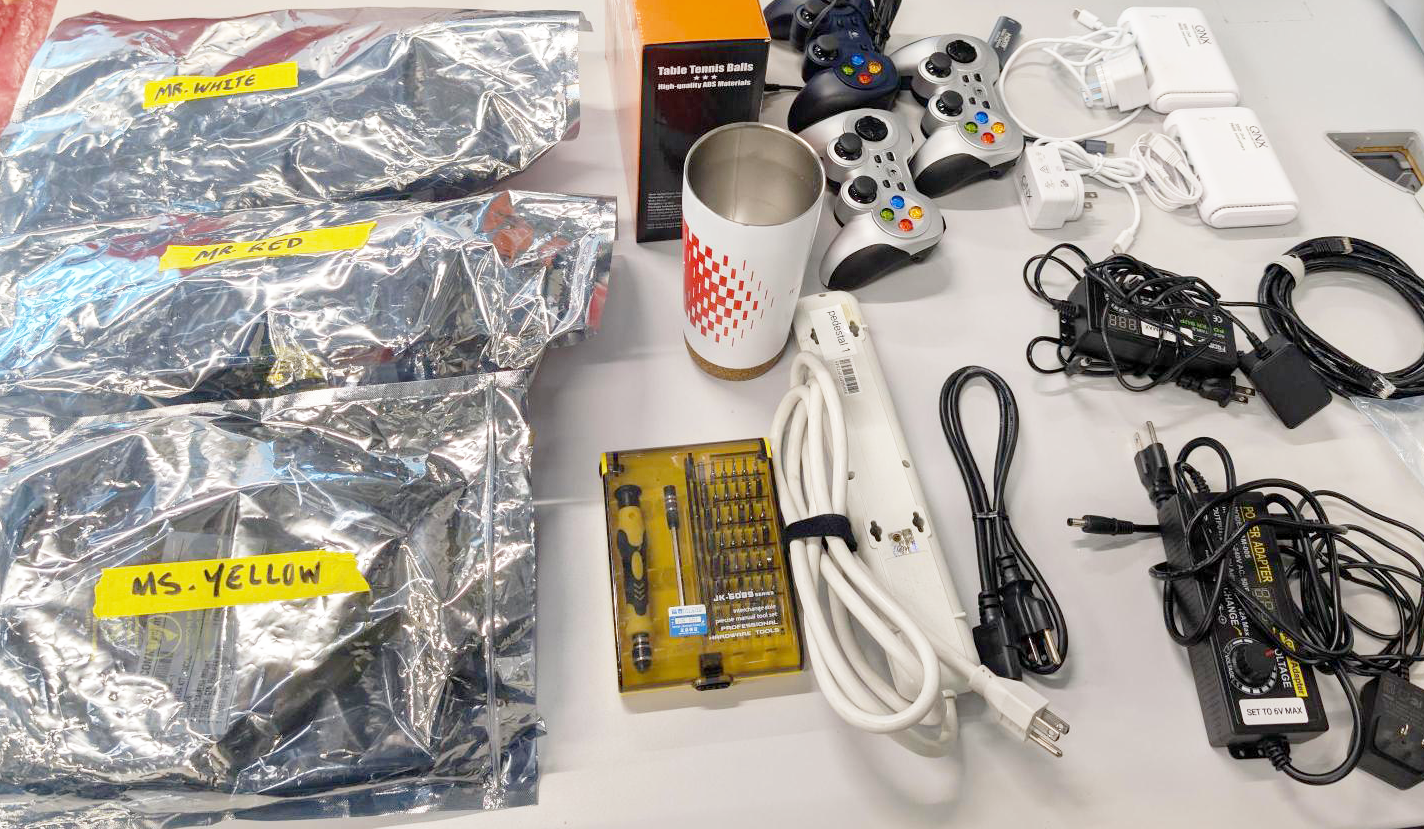
So what did they say when we interviewed them about their experience working at QNX? The answer seems to be unanimous – they loved it!
Read on for two interviews: one with Ahorna, a product management student, and one with Niraj and Maisam, two software development students.
But first! Here's a video primer of how hard they work how much fun they have every day 😄
Profile: Ahorna, Product Management
Ahorna is a student from the University of Waterloo on her second co-op term at QNX. At the time we talked, she worked in a product management (PM) role but has also contributed her engineering knowledge to this and previous roles.

Ahorna Chowdhury
Ahorna is a student from the University of Waterloo on her second co-op term at QNX. At the time interviewed, she worked in a product management (PM) role, but has also contributed her engineering knowledge to this and previous roles.
Key interview takeaways
- Ahorna's role on the product management team involved many meetings (customer, marketing, sales), which she found valuable for gaining industry exposure that wasn't available through her university studies.
- Her specific tasks included helping the team with product requirements using tools like AHA and JAMA, and in a previous term, she did more technical work creating a demo on a Raspberry Pi.
- She described the work environment at QNX as very positive, busy, and "alive," noting that people seemed happy with their work and that asking questions was highly encouraged.
- Ahorna appreciated having a meaningful workload that kept her busy and learning, which she considered a key component of a valuable co-op experience.
- She expressed a long-term interest in pursuing product management and understood the value of her development experience for securing a role after university.
TL;DR: Some notable quotes!
- "It's been really cool to sit in real customer meetings and see the type of conversations that they're having with the team, whether it be on product features or timelines, because as a university student... you don't really get exposure to the industry."
- "You can tell everyone is busy, but they're happy with what they're doing, they're not miserable. It's a very good environment to be in and working with people is really easy. I've never felt afraid of asking questions, it's always super encouraged, especially for students."
➡️ Click here to expand the whole interview
QNX:So, what is a typical day for you at QNX like?
Ahorna:
As part of the product management team, my day tends to be quite dynamic. I participate in a variety of meetings, ranging from customer discussions to cross-functional syncs with teams like marketing, sales, and field application engineers. These meetings offer valuable insight into how product decisions are made and how customer feedback is translated into an actionable roadmap. As a university student, it's been eye-opening to gain exposure to real-world industry conversations, especially around product features and delivery timelines. While academic environments focus heavily on teaching theory, this role has helped me gain a better understanding of how this all translates into real-world products.
This is my second term working at QNX. During my first term, I developed a customer-facing demo showcasing the QNX operating system on a Raspberry Pi. I ran performance benchmarks and compared them against an Ubuntu build, which gave me hands-on experience with our core OS product.
Overall, my day-to-day work is a mix of collaborative meetings and focused work in between, supporting the team wherever needed.
QNX:
Those meetings are trying to make sure that everybody is marching to the same drummer and synchronizing timelines, resources, responsibilities, all that stuff. But you did say a couple of other things that I want to dive into a little bit more. You said, "focused work in between”. What does that mean?
Ahorna:
I have already been able to touch on various product management tasks during my time here, but so far, my work has been focused on helping the team with syncing and managing product requirements. This includes creating automated scripts to sync product requirements across different tools, writing product requirements, and tracking requirement reviews.
QNX:
That requires some tools – it’s not just Word, right? What tools are do you need for managing requirements?
Ahorna:
We use AHA and JAMA, both of those.
QNX:
Okay, so you use these tools to track requirements for how the product should be built?
Ahorna:
Exactly. These tools are used to track the features and requirements for our shipped and future planned releases. These requirements are created by product managers, then reviewed by project managers, and then eventually translated into actual product features and functionalities.
QNX:
How much of your day do you spend answering emails or phone calls, or chat (Teams/Slack) or any of that stuff?
Ahorna:
Not much. As funny as it sounds...as a student, I don't get that many emails. I don't get that many messages, either. The atmosphere around me is very busy, so I can definitely feel that my team is super, super busy. Obviously, as a four-month co-op student, I'm not going to be the same level as busy as they are, but it's nice to have that sort of exposure to what’s happening around me as well.
QNX:
Let’s talk about “requirements”. For someone who might have an idea of coding but doesn't really understand the full process and they don’t know how a commercial software product would be built, how would you describe managing requirements? That doesn't sound like it would be a terribly fun kind of thing, does it?
Ahorna:
Although managing requirements do come with some grunt work, at the end of the day, the work is still enjoyable and it’s given me the opportunity to learn more about the process and about product management from a holistic sense. Although the full-time product managers have a lot more technical expertise with the products than I do, I still find it valuable to learn about the various processes that come with being a product manager, with product requirements being a big one.
Managing requirements is about translating customer needs into structured, actionable items. If a customer requests a feature, it doesn’t go straight to development. It’s carefully tracked, reviewed, and prioritized. While some of the technical details are quite advanced, I’ve found it valuable to observe how these requirements evolve and eventually shape the product.
QNX:
How do you feel in terms of working with the team? You also said you help out the team, so I'm just interested in your experiences with camaraderie and/or co-working with people here... Have you had other co-ops at other companies that you could compare it to?
Ahorna:
This is my second term at QNX, and I chose to return because of the positive experience I had previously. It was also my first in-person co-op, which made a big difference. The team here is incredibly welcoming and collaborative. There’s a strong culture of open communication, and questions are always encouraged.
QNX:
In-person versus remote can make a big difference.
Ahorna:
It definitely does. After having had both remote and in-person experiences at other companies, I can definitely understand the value of a positive in-person working culture. I enjoy that people here at QNX are constantly having conversations. You can tell everyone is busy, but they're happy with what they're doing.
QNX:
Yeah, I would agree with that. The company is very open to people asking questions. It's okay to show that you're not aware of an acronym or business term... I do it all the time.
In terms of things like workload, do you feel it's a good overall experience for you? Are you learning things? Are you interested to come into work?
Ahorna:
For sure. I appreciate having meaningful tasks that keep me engaged throughout the day. In previous roles, I’ve seen situations where students weren’t given much responsibility. Here, I’ve been trusted with work that contributes to the team’s goals, and that’s made the experience much more rewarding. It’s a great balance - challenging enough to learn, but not overwhelming.
QNX:
You had done some work on some sort of tool when you were here last time, so you’ve also done development. Is development more your track? How come you came into the PM role and why were you doing development last time?
Ahorna:
I was hired into the PM role both terms, but my technical background has allowed me to support development tasks as well. So far, my experience has been a blend of product management and technical work, which I’ve really enjoyed. Long-term, I’m interested in pursuing product management, but I recognize the value of having a strong engineering foundation, especially early in my career.
QNX:
We did a workshop at Hack the North and there were four intern PMs that were in roles very similar to yours talking about their experience, so it seemed like some companies are interested in fulfilling junior PM roles. It certainly helps to have a technical background to do it, even though you're not coding directly. Thanks Ahorna!
Ahorna:
You’re welcome!
Profile: Niraj and Maisam, Application Engineering & Software Development
Niraj and Maisam are interns that were hired as part of a field engineering "demo team task force" that creates demonstrations and handles customer evaluations. During their terms, both students had experience participating in external events like hackathons, which inspired some of their work projects.

Niraj Patel
Niraj is a 3rd year Computer Science Student at Carleton University and this is his 5th Co-op term at QNX! He really enjoys working in The Garage especially as an FAE Student. He is passionate about embedded systems, especially working at the system level right on the hardware. He loves taking new hardware boards and building functional, hands-on projects from the ground up - especially the Raspberry Pis!

Muhammad Maisam
Maisam spent a term working in QNX customer support, and then joined Niraj in the Garage to work on the student dream team!
Key interview takeaways
- The role offers them significant freedom and autonomy, allowing them to propose their own projects and build them from scratch.
- The work was hands-on and involved tangible, physical devices and cutting-edge technology, including expensive development boards.
- Their responsibilities were diverse, ranging from coding and building libraries to debugging hardware at the bit-level, ensuring the work was never boring or repetitive.
- They had the unique opportunity for co-op students to engage with real customers on product evaluations and communicate with major silicon vendors like Intel, providing valuable real-world experience.
- The students felt strongly supported by the broader QNX community, noting that senior developers were easily accessible and provided expert guidance that could solve complex problems quickly.
- The role was instrumental in developing a broad range of valuable skills, including deep technical troubleshooting, systems-level thinking, and crucial soft skills like professional communication and confidence.
TL;DR: The notable quotes!
- "This job has got a special place because we have the freedom to make projects and work on things we can actually see, not just writing test cases." - Niraj
- "You get ownership of a thing. It's not just being told to do a task and you're just finishing it. It’s more like you come with the idea, pitch it, and if it sounds good you can work on it." - Maisam
- "Coming in person, being in roles where you get to talk to people – it helps you get out of your shell and build confidence in talking with people." - Maisam
- "Even we got to a point where we were reading single bits across SPI lines - it was fun! You never think you can go to that low of a level and debug individual bits." - Niraj
➡️ Click here to expand the whole interview
QNX:
We want to understand what a day working at QNX is like.
Niraj:
So this is my favourite role to be in at QNX. I was here once before, and I worked under a general services team, a network test team.
QNX:
Okay. I could see that this would be more fun.
Niraj:
Even that was pretty cool. But this one, we have the freedom to make projects and basically work on things we can actually see, not just writing test cases. Testing your work is important, but here you actually have to work with physical devices. Being on the embedded side, it's quite important to know that it's not just writing code. You don't want to fry your board. That's a skill that we should know: how to connect pins and wires. I'd say this role is quite a flashy role because you get to work on all the cool things. So when you have a car in your background [the interview took place at their desks with an automobile in the background] and you’re in a Teams meeting, you don't need to change your video background or filter it out. It's there and all natural – it's pretty cool.
QNX:
That's fun.
Niraj:
Yeah. And we get to propose our own projects, which is a really unique thing it seems. My friends are in other companies and co-ops they are given certain dedicated stream of project or something they have to work on.
Here, we're being backed by the whole QNX community and people who are part of that. They give their inputs on our ideas and we can work on things and then we get to choose our own project, make a bill of materials, and then propose something. If it passes, we get our items and we get to work!
Every day is different. Some days you're doing coding, some days you're playing with a bunch of LEDs to test things out. Then it can get really complex with multiple chips and I2C and all those things. It's really broad, but at the same time you can really specialize on things that you like.
I find this role gives a lot of freedom. We’re also tasked with customer evaluations - not just working with Raspberry Pi. We have TI boards and they're quite expensive, so it's really fun and scary working with them at the same time. You don't want to break this board, but we get to work on really fun demos, something that hasn’t been done before. Because it's an evaluation, customers don't know what QNX really is and getting them up to the speed helps them as well as us. So even in these work opportunities, we're also learning: both sides learn certain things. Plus, we get help from other devs in the company. It really, really helps us, so we're not alone at any point. It's a cool environment, I'd say. It can get stressful sometimes, but the good thing is that there's people who can relieve that stress by guiding us.
QNX:
So, you can offload or get guidance or get help.
Maisam:
Yes - we also get to talk to other board vendors specifically, for example, we were having a meeting with Intel two days ago. Yeah, that's pretty cool. This is I think the first time our stuff was used by a customer.
Niraj:
Yeah, for Intel: they have safety certified their chip. So many customers have some third party safety certify their custom board, but Intel has the SCB-100 with its own island of protection and all that sort of thing.
QNX:
So, basically cutting-edge technology, stuff like that, right?
Niraj:
What we’re working on are things actually happening in the industry.
Maisam:
For the role we have, there's getting things working, which is pretty fun. But we also get to go to hackathons. So I think Niraj and Ibrahim, everyone's last co-op here [and the person in the youtube short], they went to the Ottawa-based hackathons before. When I went to Hack the 6ix, I joined John's team there, and that's where we came up with the idea of the robot arm…
QNX:
And then you came back and built it.
Niraj:
Yeah!
Maisam:
And John assisted us. He 3D-printed out all the parts and helped us with the design of the servos. You get that ownership of the thing, you feel like you're the one working on it. It's not just being told to do a task and you're just finishing it. It’s more like you come with the idea, pitch it, and if it sounds good you can work on it.
QNX:
You guys are in a more unique position than other internships since you’re a “demo team task force” if you will.
Niraj:
We’re like a Jack-of-all-trades. Well, we're not there yet, but it's just every day, even with the evaluations, every customer has their own requirements and they're always different from one to another. This role helps us familiarize what the real world expects and how it really works.
QNX:
You’re not only talking to silicon vendors, but customers as well and say, "Oh, here's this customer: they've got such-and-so problem. Why do they have that problem?" And you get to explore that a little bit. These are not like, manufactured problems for you to help on, and I guess that's a little bit unusual for you because for some intern roles, everything would be fake problems, not real customer issues.
Niraj:
Being a co-op student, it really gives you that perspective: you are talking to a real customer of a company. It's not some custom project. If you're reaching out to a manager, someone whom you know, this is something that…
Maisam:
It's like you're actively making the company money and solving their problems.
Niraj:
Right - you can see results! There's always back-and-forth communication between us and people doing evaluations, or between us and people doing a proof of concept. If someone wants to evaluate QNX, we have to show them how to do it by giving proper support in whatever the requirements are.
QNX:
When you say that you're working on something, how much time do you spend coding or designing things or debugging or how much time of it is meetings, how much time of it is just trying to get a piece of hardware to behave the way you want? Do you have any idea of where you're spending your time or is it just all this big flow of activity?
Niraj:
It's all transition from one thing to another. There's no set time to dedicate to doing this or that. You plan your day depending on what the priorities are. Some days you spend the entire day just building tools or libraries in order to build something. Other days you're writing code to work on the thing you just built. It really depends on what the current task is. But I'd say it is always unique.
I would also say it's impossible to get bored in this position compared to someone who just does testing and writing code. Even if you're writing code, you would come to a point where you'll just get bored. This job exposes you to different issues.
QNX:
Like you had said before, you've got the ability to do different things all the time. What about interaction with co-workers, like non co-op people within the company? How do you find that? Is it easy to get what you need? Do you like working with the people? Is it challenging?
Niraj:
It's surprisingly so much easier and so helpful to reach out to people, especially when things are of high priority. The support we get is quite valuable to us because we could spend weeks doing something, when one quick call could solve all issues. Getting feedback if we're doing something right or wrong and getting expert advice really helps us in our role. Even though we are just co-ops here, the whole dev team and everyone who we reach out to always backs us. It even scales up the management level in case something is out of the developer's hands. People will push it back up to their management so we always find solutions, which is good.
QNX:
So you feel like you always basically have support, not just flailing around trying to get stuff done.
Maisam:
The other part is coming in person every day. That's a big, good thing because I've seen my other friends at different companies. They can message someone and it takes them days to get back or sometimes hours where they could just go and find someone...
QNX:
Are they working remote in those jobs?
Maisam:
It's hybrid. Both here and there.
QNX:
But the kind of work that you guys are doing, obviously you can't do that at home, so you must have all the equipment and the boards, meters, gages, sensors, whatever.
Maisam:
It's also much better in person because we have other people here. If we're stuck with something, we can just go and ask. It's also good to meet people in the morning and you can say hi to people. It’s nice to see faces rather than just sitting at home.
Niraj:
The office environment itself is something that I like coming to first thing. In this position, I like standing, just because of the setting. Mike [the garage manager] likes to joke that we have the biggest office space, even bigger than the CEO of BlackBerry! It’s literally the biggest office space because there aren’t walls. And it's always fun. We get to work on demos, robotic arms, and we get to play around with stuff and see it happen.
Maisam:
Actually, when I need a break I go play Flappy Bird on one of the demos, or try stacking up cubes with the robot arm.
QNX:
But you learn things from doing that too.
Maisam:
Yeah, you get more ideas. You're doing something like, oh, why am I doing it this way? Why don't I do that? For example, the QNX demo that we brought to Hack the 6ix had a screen. But we didn't have any actual demos showing how it'd interact with hardware or how people could play with it. That brought us to the idea – why don't we just use a robotic arm to move stuff? John wanted to bring one of the real factory-quality robotic arms, but they're very expensive and we couldn’t risk breaking it. So, we thought “could we build a cheap one from off-the-shelf parts and 3D printed components”? That’s how we created this “hobbyist” arm.
QNX:
That's cool.
Niraj:
The resources are good here. Anything that you want is always here in the garage. You ask Mike about the most unique cable that you'd ever want and it'll be there. It's insane how it is always present, but there's always something that you can always get from the garage. It's pretty cool.
Maisam:
It's also good to meet a lot of people here. A lot of people come down to the garage for demos and stuff. You get to meet them, go talk to them, and that's a great opportunity as well.
Niraj:
Yeah – you get to talk to people from the outside. Mayors come by and then there's people from government. Companies, governments, media – they come see stuff that we work on, and we get to see it in their reports, or on the news. It's shared everywhere, so that’s pretty cool to see.
QNX:
Yeah, for sure. How do you think this is preparing you for your next job?
Maisam:
One thing which I realized generally in the industry is that people face communication problems, especially on the development side. A lot of people are stuck to their computers and they struggle with communicating with people, and coming out to meetings. Coming to work in person, being in roles where you get to talk to people – that helps you get out of your shell. You get a lot of confidence to talk to people and you realize that everyone's just a human. Even when you're talking to a CEO, he's also a person at the end of the day. I haven't talked to the CEO yet, but directors and VPs – there’s a title, but at the end, they’re just people.
Even when we were going to the hackathon, we met Patrick [Senior Director Product Management] and the other important people there as well. When you realize that everyone's a person, it's easier to talk to them. That’s a fear most students would have.
Niraj:
For me, it really is about how we get to solve problems. Every problem is new, which is what I like about this role. I've never had a problem that is repetitive. Time flies by here because the problems are unique every time. We have to use different methods and approaches. Finding creative ways to isolate a problem is one way of doing it. And there's the hardware approach, where you stick an LED in one of the GPIO pins just to see if it works or not. For one challenging issue, we were reading single bits across SPI lines and it was fun. You never think you can go to that very low level and debug individual bits. That was part of a customer evaluation – they were replacing physical hardware on their side and the clock was getting misaligned. So we really had to dig to the lowest level. Solving that was something I take pride in.
QNX:
Developing those troubleshooting skills is absolutely something that you're going to take with you in your next job, even if it isn’t hardware. Knowing how to break a problem down and solve individual bits or isolate it is a huge skillset, for sure.
Maisam:
Adding to that, even though we work in a software company, there can be a lot of IT challenges. Networking on demo systems can be a huge monster. You have to figure out: why is something not working? What are the protocols being used? For example at the hackathon, Niraj spent a decent amount of time figuring out why the robotic arm or the Inertial Measurement Unit (IMU) is not working or the Wi-Fi doesn’t work. At the end, we figured out that the Wi-Fi [at the venue] had issues so we needed to use a different network. So it combines software, networking, hardware, electrical engineering, etc.
QNX:
It's like you were saying about breaking down a problem, but the macro view of that: the problem could be something completely unrelated. Sounds like the job gives you all kinds of different ways to look at things while the problems are complex and interesting enough to look at.
Niraj:
It's really good exposure to all different things; that's the best part. Everything's different and it's just so nice to have the tools ready to implement something. You have some ideas that you want to test out, and you can try different approaches.
Maisam:
Interestingly actually, yesterday we had this issue: we had this one board and we built everything on it. Everything was running perfectly so I made the documentation for it. Then our manager brings in another board, exact same type, and we try flashing it and it doesn’t work. Everybody's like, "Why it's not working?" We tried changing boards, and that didn’t help. So we got on a call with the board vendor and they're like, "Oh, maybe it's a different version of the bootloader." And then we got that reflashed and it works now. We would have never been able to fix it otherwise.
QNX:
Sounds really engaging! Thanks so much for sharing!
Niraj/Maisam:
Of course; You’re welcome.
QNX hires student interns every semester! You can find our open roles, both internships and full-time roles, on our Careers portal!
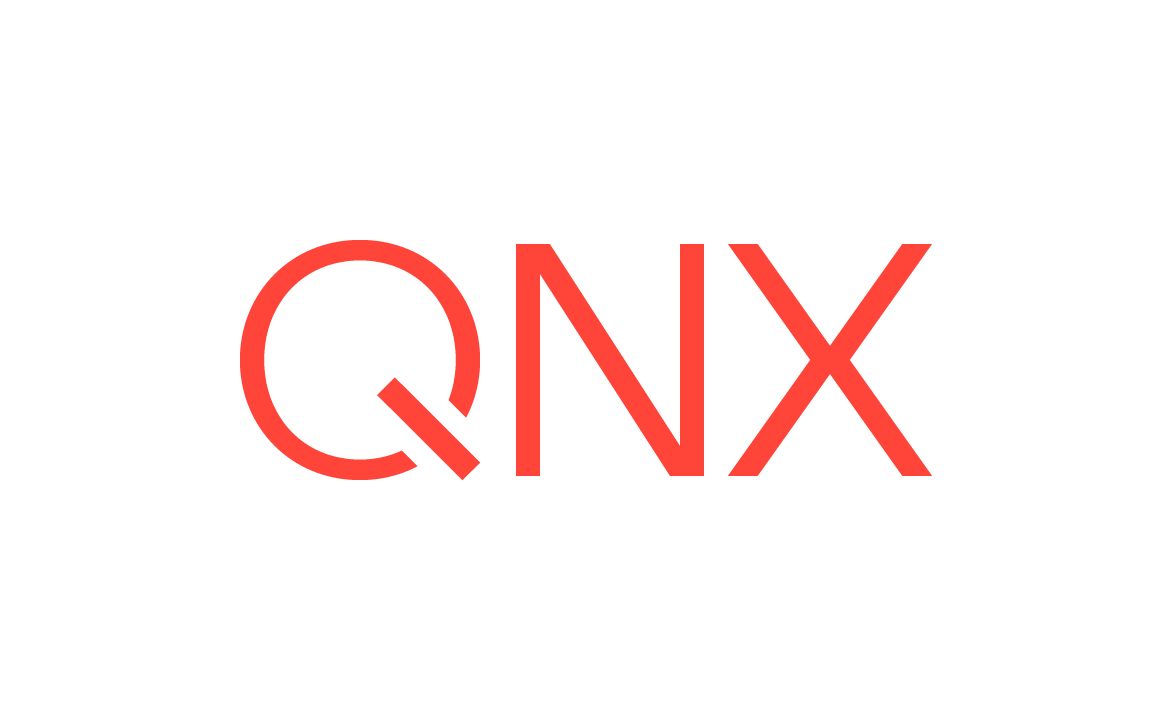
Here's a tip to help make your application stand out: since QNX is free to get and learn on, there's no excuse to not have some QNX experience listed on your resumé/CV! Visit qnx.com/getqnx to get QNX, and learning.qnx.com to take some training.
What will you build?!

